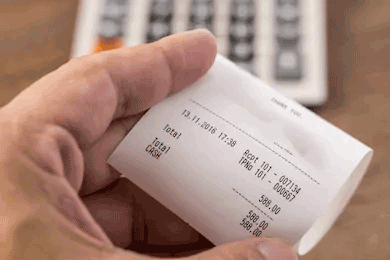Forgery Unmasked: Navigating the Shadows of Fake Receipts
In today's increasingly digital age, the ease of creating and circulating fake receipts has become a concerning issue. Whether used for fraudulent reimbursement claims, tax evasion, or as part of a larger scam, fake receipt pose a serious threat to businesses, individuals, and government revenue. This article delves into the world of fake receipts, exploring the methods employed to create them, the risks associated with their use, and the potential consequences for those who engage in such deceptive practices.
The Proliferation of Fake Receipts
Advancements in technology have made it easier than ever to forge receipts with convincing precision. From simple photo-editing tools to more sophisticated software, creating a fake receipt has become a task that doesn't necessarily require expert knowledge. Websites and online platforms offering customizable receipt templates further contribute to the accessibility of these deceptive practices.
Common Uses of Fake Receipts
Fake receipts find their way into various illicit activities. Business professionals may exploit them to inflate expense reports, leading to financial losses for companies. Individuals might use fake receipts for tax evasion purposes, manipulating their financial records to reduce tax liabilities. In the online marketplace, scammers may employ counterfeit receipts to deceive buyers or prove false transactions, exacerbating the challenges faced by e-commerce platforms.
Risks and Consequences
Engaging in the creation or use of fake receipts comes with a multitude of risks and potential consequences.
Legal Ramifications: Depending on the jurisdiction, the use of fake receipts can lead to severe legal consequences. Forgery, fraud, and tax evasion charges may be brought against individuals found guilty of employing such deceptive practices.
Financial Repercussions: Companies falling victim to employees submitting fake receipts may suffer financial losses. Governments may lose tax revenue due to fraudulent practices, impacting public services and infrastructure.
Damage to Reputation: For businesses and individuals alike, being associated with fraudulent activities can lead to irreparable damage to reputation. Trust is easily lost, and rebuilding it may prove to be a challenging endeavor.
Combating Fake Receipts
As the threat of fake receipts continues to grow, businesses and individuals must adopt proactive measures to protect themselves. Implementing robust internal controls, utilizing digital receipt verification tools, and fostering a culture of transparency and ethics are crucial steps in mitigating the risks associated with fake receipts.
Click here for more information :-

Comments
Post a Comment